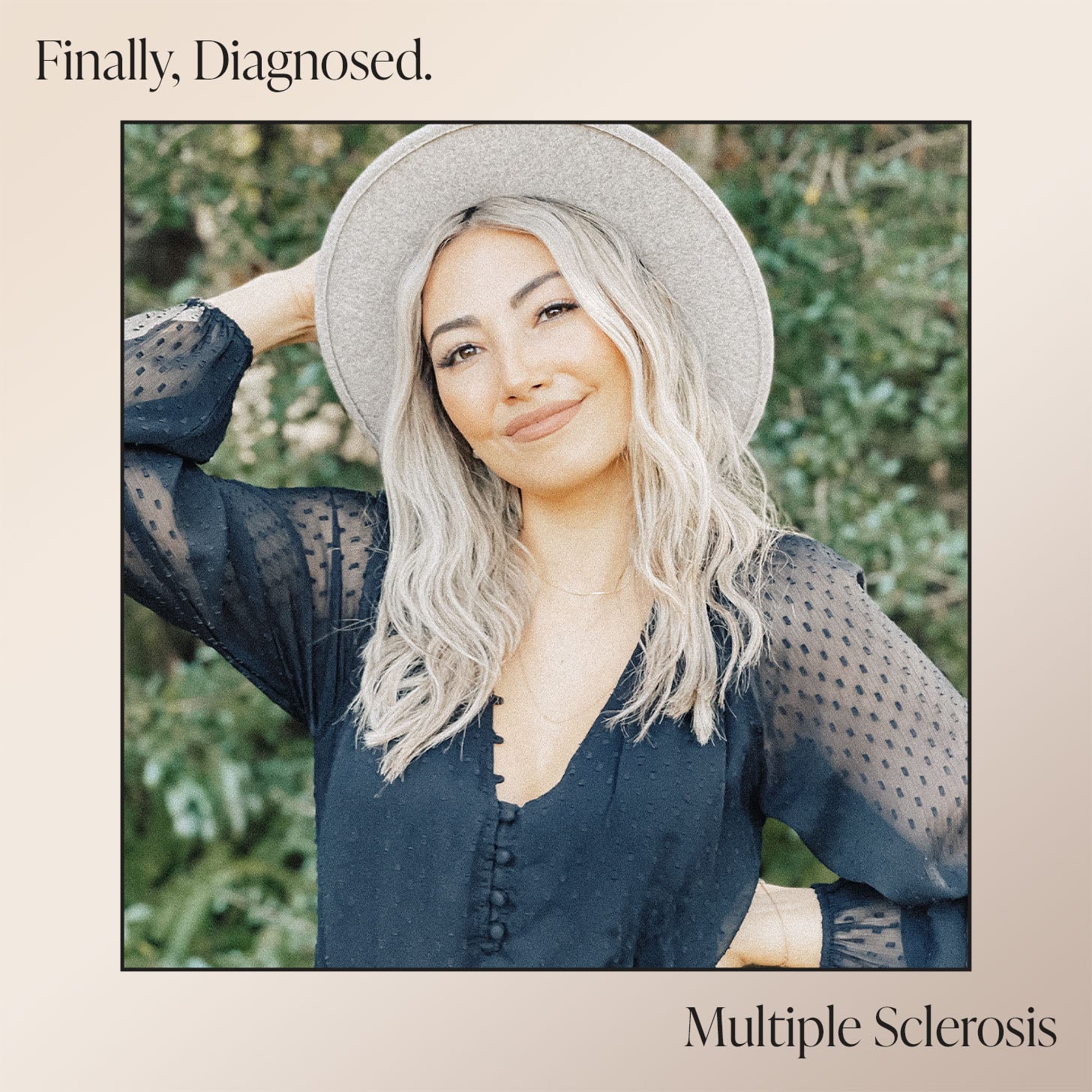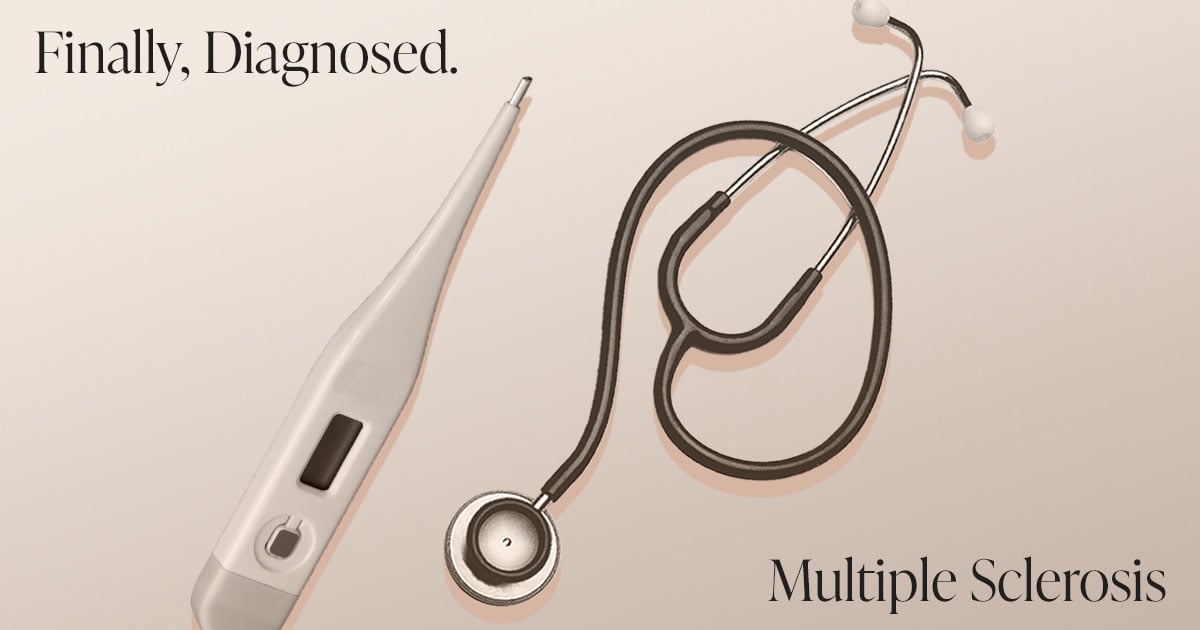Products You May Like

It was the day before Thanksgiving 2018 when Ashleigh Torretta, 29, received a phone call from her local Publix pharmacy. They wanted to inform her that a new prescription medication (one often used to treat multiple sclerosis), wasn’t covered by insurance and that her doctor would have to fill out a form in order for it to be covered.
Although Ashleigh had spent the past few months visiting healthcare providers, looking for a reason behind her sudden vision loss and the tingling sensation down her neck, as far as she knew, no one had pinpointed the problem. “I had no idea what she was talking about,” Ashleigh remembers. It ended up being the beginning of the end of her search for a diagnosis — but only the start of her journey to recovery.
Ashleigh’s first hint that something was off was tingling down her neck
From the start, she had trouble getting answers though. She noticed the tingling in June 2018, but was told by a chiropractor not to worry and that it was probably just tension that would eventually subside. It didn’t. Blurry vision followed in October. And after one fruitless visit to her eye doctor, Ashleigh went a second time, frustrated, and pressed for a better recommendation. “I demanded [an answer] and was like ‘there’s something wrong, something’s going on,'” she told POPSUGAR. Eventually, it was recommended that she see a neurologist.
Luckily, Ashleigh had seen one a few years prior for migraines. But when she described her vision problems — having seen a “shadowy figure in the peripheral of her right eye,” as well as blurry and double vision, also called diplopia (and a common symptom of MS) — the specialist said, “I’m not too sure what this could be,” and suggested an MRI. A few weeks after the MRI, her neurologist suggest a lumbar puncture.
While Ashleigh was glad to be getting additional testing, she wasn’t sure what the neurologist was looking for in either test. Later, she learned that spinal taps can be used to diagnose conditions like multiple sclerosis, as well as myelitis and meningitis. But Ashleigh still “had no idea that MS was something that was being considered heavily at this point,” she says. “I was just being told to rule out things, you’re fine, you’re fine, don’t worry about anything. And at that time, my vision had come back, so I really wasn’t worried.”
She was starting to think the vision loss had been a fluke — until she got the call from the pharmacy
Ashleigh remembers the complete and utter shock that came over her when the pharmacist mentioned a medication used to treat multiple sclerosis. “I had no idea what she was talking about,” she says. At that moment, call-waiting beeped: her doctor’s office was calling. So she hung up with the pharmacy and clicked over.
“I picked up the phone, and it was a nurse — not even my doctor, but a nurse — who proceeded to tell me that my results were consistent with MS,” Ashleigh says. She asked exactly what “consistent with” meant. “And she was like, ‘You have MS.’ Just like that.”
Ashleigh says she her immediate reaction was deep denial. “I did not want to accept that MS was what this was.” Another reason she had trouble trusting the diagnosis was because this doctor had initially told Ashleigh that she was “probably fine.”
But a month later she got a second opinion and again, it was confirmed that she had multiple sclerosis. The healthcare provider recommended that she see an MS specialist.
Ashleigh spent the next three months struggling to find adequate care
In March, Ashleigh’s vision loss came back. (Later, she learned it was the result of optic neuritis, inflammation of the optic nerve, which is sometimes associated with MS.) “I lost half of my vision, so I did not see from my left eye,” Ashleigh says. “I would see only half of people’s faces and my whole reality changed.”
When she conveyed this to the MS specialist that her neurologist recommended, Ashleigh says she was gaslit and told that she didn’t need steroid medication and that her eye symptoms were not a concern. It wasn’t until Ashleigh, in tears, pulled out her own records from a recent ophthalmology appointment that the doctor listened and recognized that she hadn’t even been looking at Ashleigh’s most recent tests.
In the moment, Ashleigh says she just kept thinking, “This cannot be my doctor. This cannot be the road that I go down.” She kept looking for better care and shortly after she found another doctor who provided her with the specialized support that she needs.
Eventually, that doctor discovered that Ashleigh had 25 brain lesions — areas of damage or scarring in the central nervous system, caused by MS. “People that you speak to with MS are gonna have maybe six or seven, or one or two,” Ashleigh says.
Today, Ashleigh is in remission, but continues to advocate for MS awareness on social media
After two rounds of Lemtrada infusions, an intense treatment used to tackle relapsing forms of multiple sclerosis, Ashleigh says she went into remission. (This doesn’t mean she no longer has MS, but rather that she’s in a period of recovery between relapses of symptoms, which can last for weeks, months, or more.) She still experiences “psuedo flares” from time to time, including buzzing in her fingertips and spine, but overall, she manages the condition by being intentional with her time and energy.
While she can no longer do her job in hospitality, Ashleigh has channeled those skills into social media, building up “the platform that I needed when I was diagnosed,” she says. As an empowerment coach, she helps others come to terms with their diagnosis and navigate their new normals.
One thing that Ashleigh hopes to has emphasize to her clients in to be your own best advocate throughout your medical journey. “You have to come prepared to fight for yourself, because nobody else is going to do it for you,” Ashleigh says.
Each year in the US, an estimated 12 million adults who receive outpatient care are misdiagnosed, and oftentimes, those patients fall within a minority identity, including women, nonwhite Americans, and those within the LGBTQ+ community. That’s why we created Finally, Diagnosed: a monthly series dedicated to highlighting the stories of those who’ve been overlooked by their doctors and forced to take their health into their own hands in order to get the care they deserve
